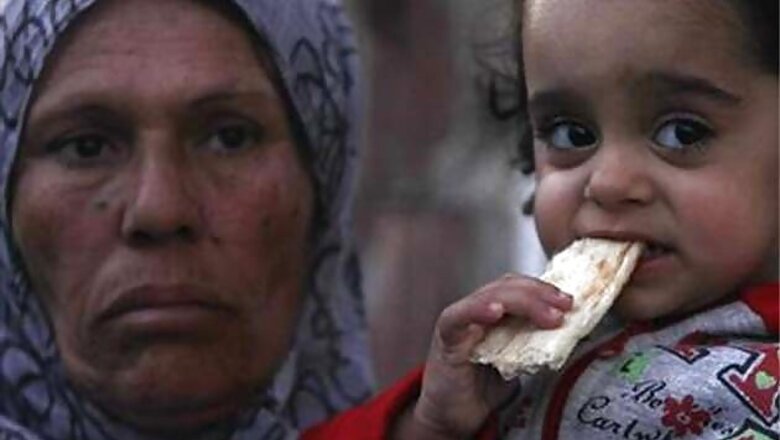
views
NEW DELHI: Poor management, financial irregularities and weak implementation are plaguing India's massive state-run scheme to feed children, a government audit has found, hindering the country's efforts to fight malnutrition in almost half its child population.
The Integrated Child Development Services (ICDS) scheme has been running for almost 40 years - aimed at reaching 160 million children through a range of services to boost health and nutrition - and is seen as one of the world's largest state-run social welfare programs.
But a government audit has found that the 155 billion-rupee-a-year scheme has not only failed to meet targets to reduce infant and child mortality, but inadequate services have meant that around 50 per cent of Indian children under six-years-old are not benefiting from the programme.
"The implementation of the scheme was marked by various shortcomings and lapses," said a report by India's Comptroller and Auditor General (CAG) issued on Tuesday.
"Given India's status on the key indicators for the well-being of its children, the ICDS scheme requires appropriate strengthening for effective delivery of its services in order to build a sound and healthy future for the economy," said the audit which was carried out from 2006 to 2011.
Despite India's economic boom over the last two decades, 42 per cent of children under five are underweight, 16 per cent are severely malnourished, and almost 70 per cent are anaemic - prompting Prime Minister Manmohan Singh to last year call child malnutrition "a national shame".
India's infant and child mortality rates are some of the highest in the world, not only when compared to industrialised nations but also against many developing states.
In 2010, 48 babies per 1,000 died within the first year of birth, while 63 children per 1,000 died. In more developed nations, infant and child mortality rates are as low as 5 and 6 respectively.
NO ROOF, WEIGHING MACHINES
The CAG report said many nutrition centres - known as Anganwadi Centres (AWCs) - which are used to deliver services such as health checkups, pre-school education, providing medicines, food rations and child and maternal healthcare advice - had not been constructed or had been poorly built.
One quarter of the centres visited did not have roofs or were operating out in the open under trees or on school verandas, while more than 60 per cent did not have their own building, said the CAG.
More than half the centres did not have toilets and almost a third did not have access to clean drinking water, it said, adding that this was exposing children to "unhygienic conditions".
The CAG also found the centres lacked equipment such as weighing machines and medicines and there was insufficient staff -- many of whom had not being given adequate training.
"The necessary equipment, furniture and utensils required for providing services such as supplementary nutrition, pre-school education and growth monitoring, and medicine kits required to prevent outbreak of common seasonal diseases among children were not available at many centres," said CAG.
"Thus the quality of service available to the beneficiaries was seriously compromised on account of inadequate infrastructure and logistic support."
"UNREALISTIC BUDGETING"
The audit said financial management and monitoring of the ICDS by the ministry of women and child development was weak.
It said "unrealistic budgeting" -- where authorities had underestimated their expenditure - had resulted in a shortfall of funds.
Around 580 million rupees was diverted to other welfare schemes which were not linked to the ICDS, while another 700 million rupees that should have been spent were lodged in personal and other bank accounts.
In some cases, CAG said there had been financial irregularities over the period 2006 to 2011, amounting to 20 billion rupees in India's regions of Uttar Pradesh, Andhra Pradesh, Rajasthan, Meghalaya and Orissa.
This included suspected cartelisation in contracts for supply of rich energy foods for children, doubtful purchases of firewood and fuel for preparing cooked food for children and suspected misappropriation of food from a nutrition centre.
It called on the government to launch an inquiry into the irregularities as well as prepare guidelines on procuring items such as food and medicines for the ICDS.

















Comments
0 comment